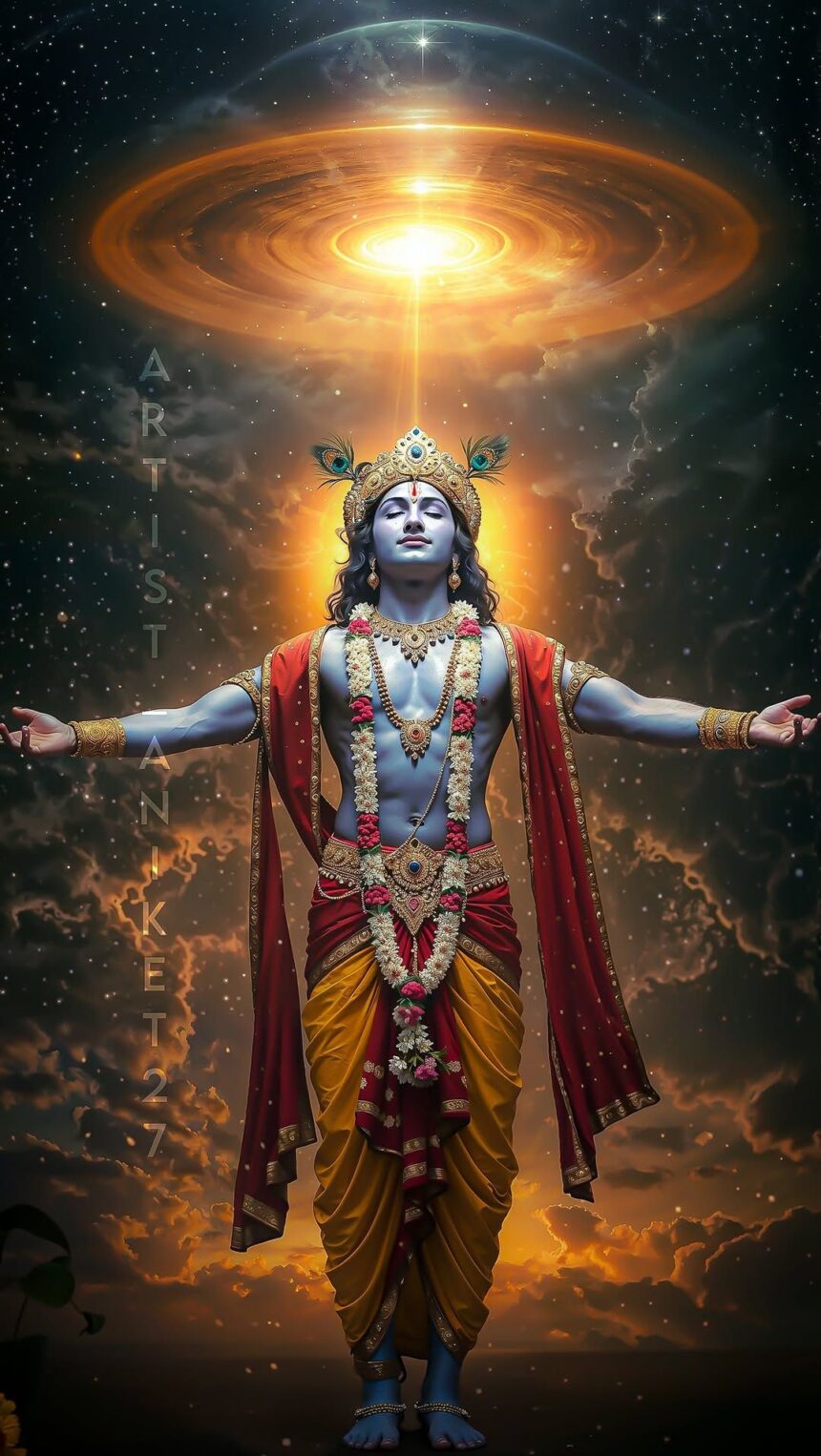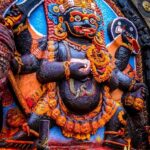7 Amazing Facts About Lord Vishnu That Will Inspire You Deeply
Lord Vishnu, one of the principal deities in Hinduism, is known as the preserver and protector of the universe. As part of the Hindu Trinity (Trimurti), alongside Brahma the creator and Shiva the destroyer, Vishnu maintains cosmic balance and dharma. Revered as kind, compassionate, and all-powerful, Vishnu is central to Hindu philosophy, scriptures, and devotional practices. This article explores his history, fascinating facts, timeline, significance, FAQs, impact on daily life, and societal importance, written in a human-friendly way.
Vishnu
| Characteristics : | Protector, Preserver |
| Other Names : | Narayan, Adinath, Hrishikesh, Badrinath |
| Principal Scriptures : | Vishnu Purana, Vishnu Sahasranama |
| Consort : | Lakshmi, The Goddess of Wealth |
| Abode : | Vaikuntha |
| Mount (Vahana) : | Garuda (The Eagle Bird) |
| Weapon : | Chakra and Gada (mace) |
| Mula Mantra : | Om Namo Bhagwate Vasudevaya |
| Vishnu Gayatri Mantra: | Om Narayanaya Vidmahee Vasudevaya Dheemahi Tanno Vishnu Prachodayaat |
History of Lord Vishnu
Vedic Origins: Vishnu appears in Vedic texts, initially associated with the sun and cosmic order, gradually emerging as a supreme preserver.
Role in Hindu Trinity: While Brahma creates and Shiva destroys, Vishnu preserves creation, ensuring cosmic harmony and dharma.
Incarnations (Avatars): Vishnu is famous for his ten major avatars (Dashavatara), including Matsya, Kurma, Varaha, Narasimha, Vamana, Parashurama, Rama, Krishna, Buddha, and Kalki. Each avatar restores balance and protects humanity.
Divine Attributes: Vishnu is depicted with blue skin, four arms, holding a conch (shankha), discus (chakra), mace (gada), and lotus (padma). These symbolize protection, righteousness, power, and spiritual purity.
Consort: Vishnu’s consort is Goddess Lakshmi, representing wealth, prosperity, and well-being.
Global Worship: Vishnu is worshiped through Vaishnavism, one of the largest Hindu traditions, with temples and rituals worldwide.
Interesting Facts About Lord Vishnu
Supreme Preserver: Vishnu maintains cosmic order, harmony, and dharma, protecting creation from chaos and destruction.
Dashavatara: Each avatar represents moral and spiritual lessons, showing how divinity adapts to human challenges.
Vishnu’s Symbols:
Shankha (Conch): Calls devotees to righteousness.
Chakra (Discus): Destroys evil and protects dharma.
Gada (Mace): Symbolizes power and authority.
Padma (Lotus): Spiritual enlightenment and purity.
Rama and Krishna: Vishnu incarnated as Rama, the ideal king, and Krishna, the guide of dharma, inspiring devotion and ethical living.
Vishnu Sahasranama: A sacred text with 1000 names of Vishnu, recited for blessings, protection, and spiritual growth.
Vaikuntha: Vishnu resides in Vaikuntha, the divine abode symbolizing eternal peace and bliss.
Festivals Dedicated: Celebrated in Janmashtami, Rama Navami, Vaikuntha Ekadashi, and other occasions emphasizing devotion, ethics, and spiritual reflection.
Timeline of Lord Vishnu
Vedic Era: Mentioned in Rigveda and other Vedic texts as a solar and preserving deity.
Epic Age: Central to Mahabharata and Ramayana, guiding humans and teaching dharma.
Puranic Period: Stories of Dashavatara and Vishnu’s deeds elaborated in Vishnu Purana, Bhagavata Purana, and other texts.
Historical Worship: Vishnu temples flourish across India (e.g., Tirupati, Badrinath, Jagannath Puri).
Modern Era: Vishnu’s teachings inspire devotees globally, forming the foundation of Vaishnavism communities.
Significance of Lord Vishnu
Spiritual Significance: Vishnu teaches faith, devotion, protection, and restoration of dharma.
Moral Guidance: Inspires righteous living, truthfulness, compassion, and selflessness.
Role Model: Demonstrates adaptability, courage, and responsibility through his avatars.
Cultural Icon: Central to temples, festivals, arts, dance, and music, preserving Indian heritage.
Daily Life Impact: Encourages discipline, ethical behavior, courage, and devotion in personal and professional life.
Societal Influence: Promotes harmony, justice, protection of the weak, and ethical governance.
FAQs About Lord Vishnu
Q1: Who is Lord Vishnu?
A1: Vishnu is the preserver and protector of the universe, maintaining cosmic order and dharma.
Q2: What is the significance of Vishnu’s avatars?
A2: Each avatar restores balance, righteousness, and protection of humanity in times of crisis.
Q3: What is the Vishnu Sahasranama?
A3: A sacred text listing 1000 names of Vishnu, recited for blessings, protection, and spiritual growth.
Q4: Who is Vishnu’s consort?
A4: Lakshmi, the goddess of wealth, prosperity, and well-being.
Q5: How is Vishnu worshiped?
A5: Through temples, recitation of prayers, chanting mantras, and festivals like Janmashtami and Rama Navami.
Impact on Daily Life
Lord Vishnu’s teachings influence spiritual, ethical, and societal development:
Faith and Devotion: Encourages daily prayers, meditation, and trust in divine guidance.
Moral Courage: Inspires righteous decisions and ethical living.
Problem-Solving: Vishnu’s avatars teach strategic thinking, courage, and patience.
Family Values: Exemplifies loyalty, responsibility, and harmony in relationships.
Community Harmony: Festivals and rituals strengthen cultural identity and social unity.
Observance and Wishing
Janmashtami: Celebrates Krishna’s birth, promoting devotion, joy, and spiritual reflection.
Rama Navami: Honors Rama’s birth, fostering ethical values, courage, and dharma.
Vaikuntha Ekadashi: Observed by devotees for spiritual purification, fasting, and blessings.
Daily Worship: Recitation of Vishnu Sahasranama, prayers, and offering flowers or water to images/temples.
Wishing: Seek Lord Vishnu’s blessings for protection, guidance, prosperity, and spiritual growth.
Conclusion: Why Lord Vishnu Matters
Lord Vishnu symbolizes divine protection, dharma, and balance in life. His avatars provide timeless guidance, teaching humans how to overcome adversity, remain righteous, and maintain harmony.
In daily life, Vishnu’s teachings inspire spiritual growth, ethical behavior, courage, and devotion. In society, his values promote justice, protection of the weak, cultural preservation, and ethical governance. By following Vishnu’s guidance, humans can lead balanced, virtuous, and spiritually fulfilling lives, contributing to a harmonious and morally strong society.
Quick Recap: 7 Amazing Facts About Lord Vishnu
Supreme preserver of the universe.
Dashavatara teaches moral and spiritual lessons.
Symbols (Shankha, Chakra, Gada, Padma) represent cosmic virtues.
Rama and Krishna inspire devotion and righteousness.
Vishnu Sahasranama offers spiritual blessings.
Vaikuntha symbolizes eternal peace.
Festivals like Janmashtami and Rama Navami promote ethics and devotion.








